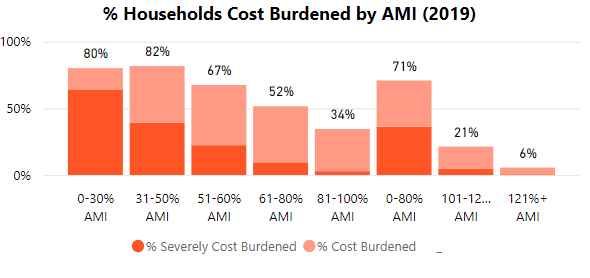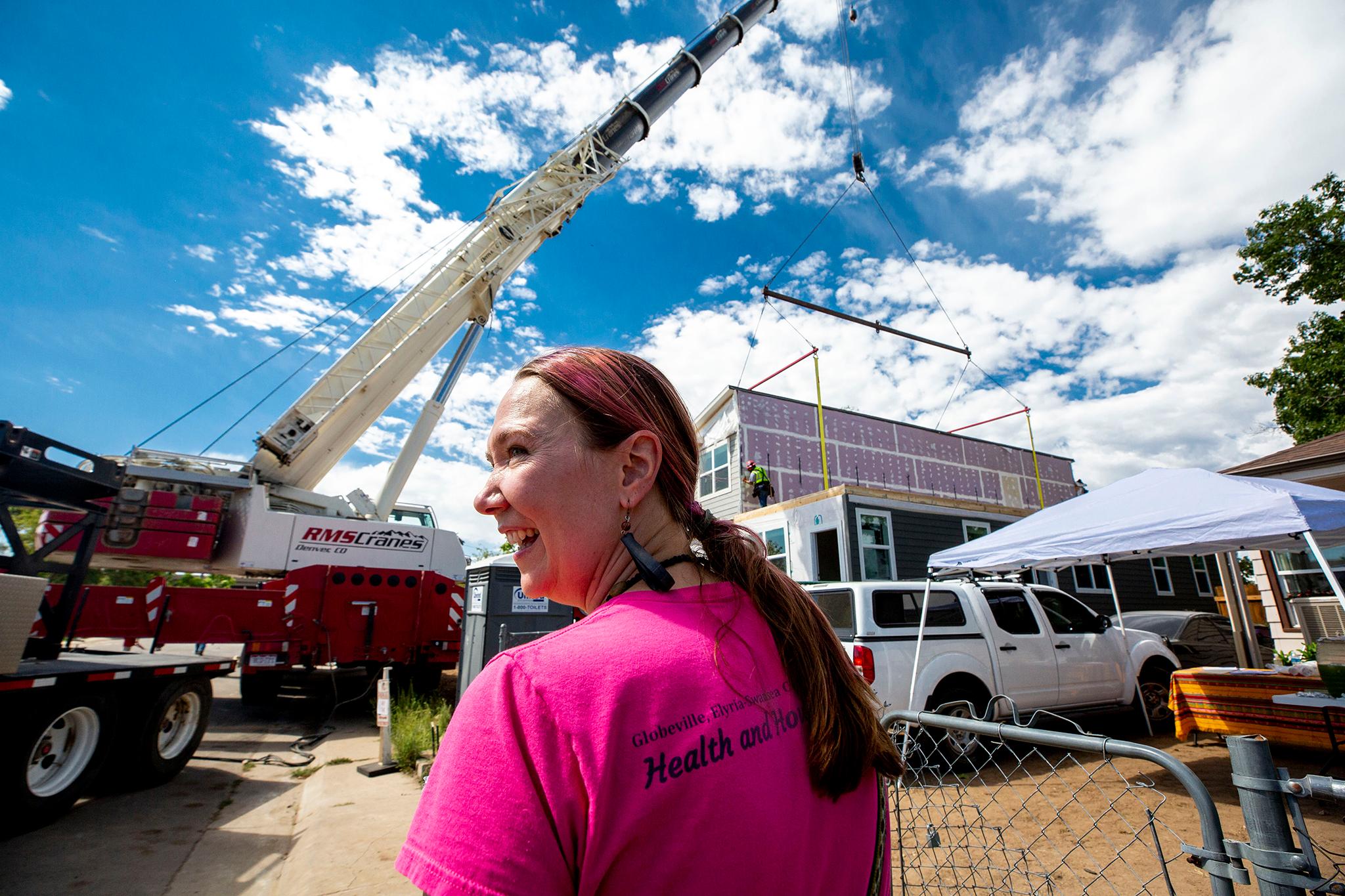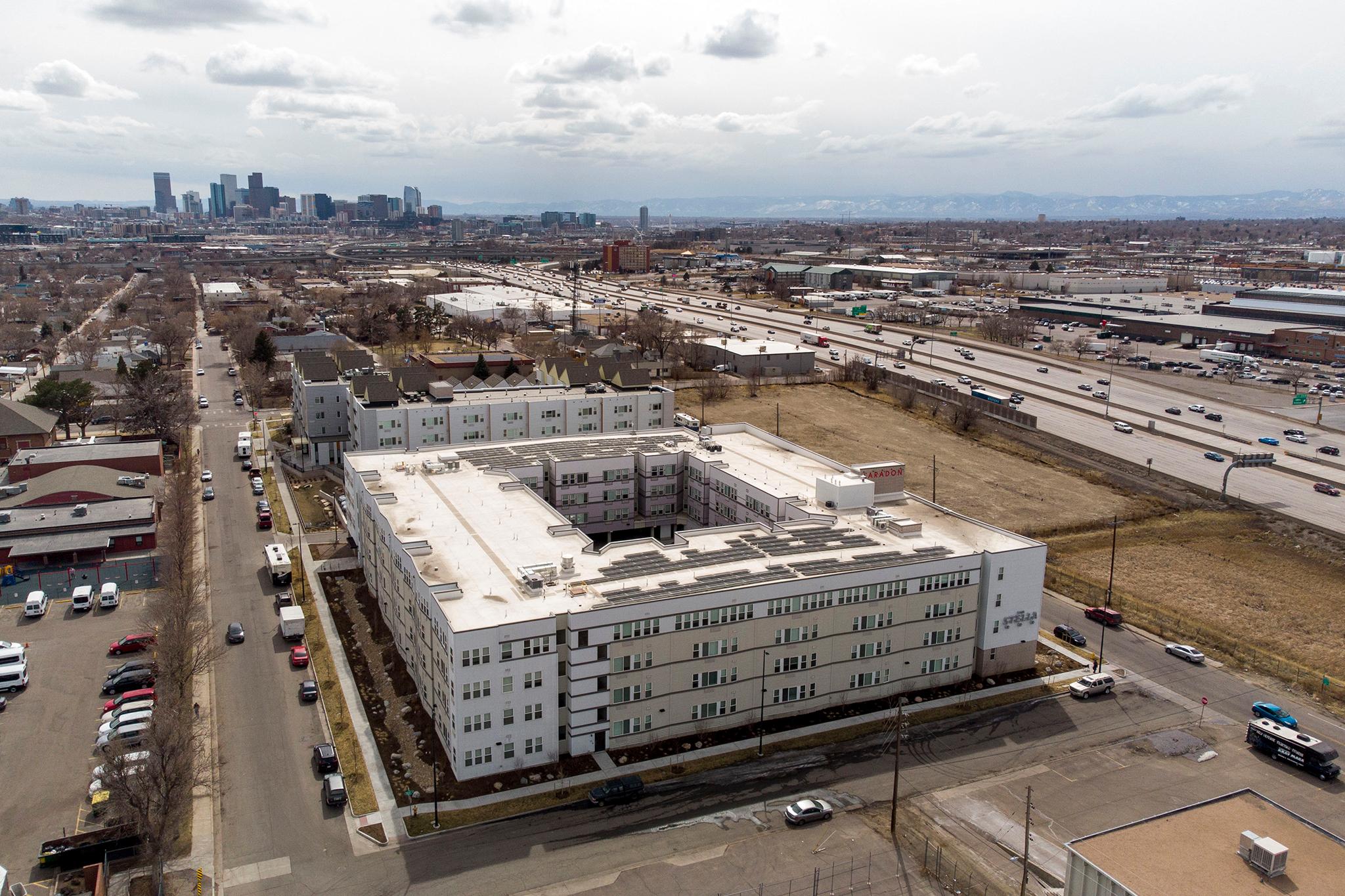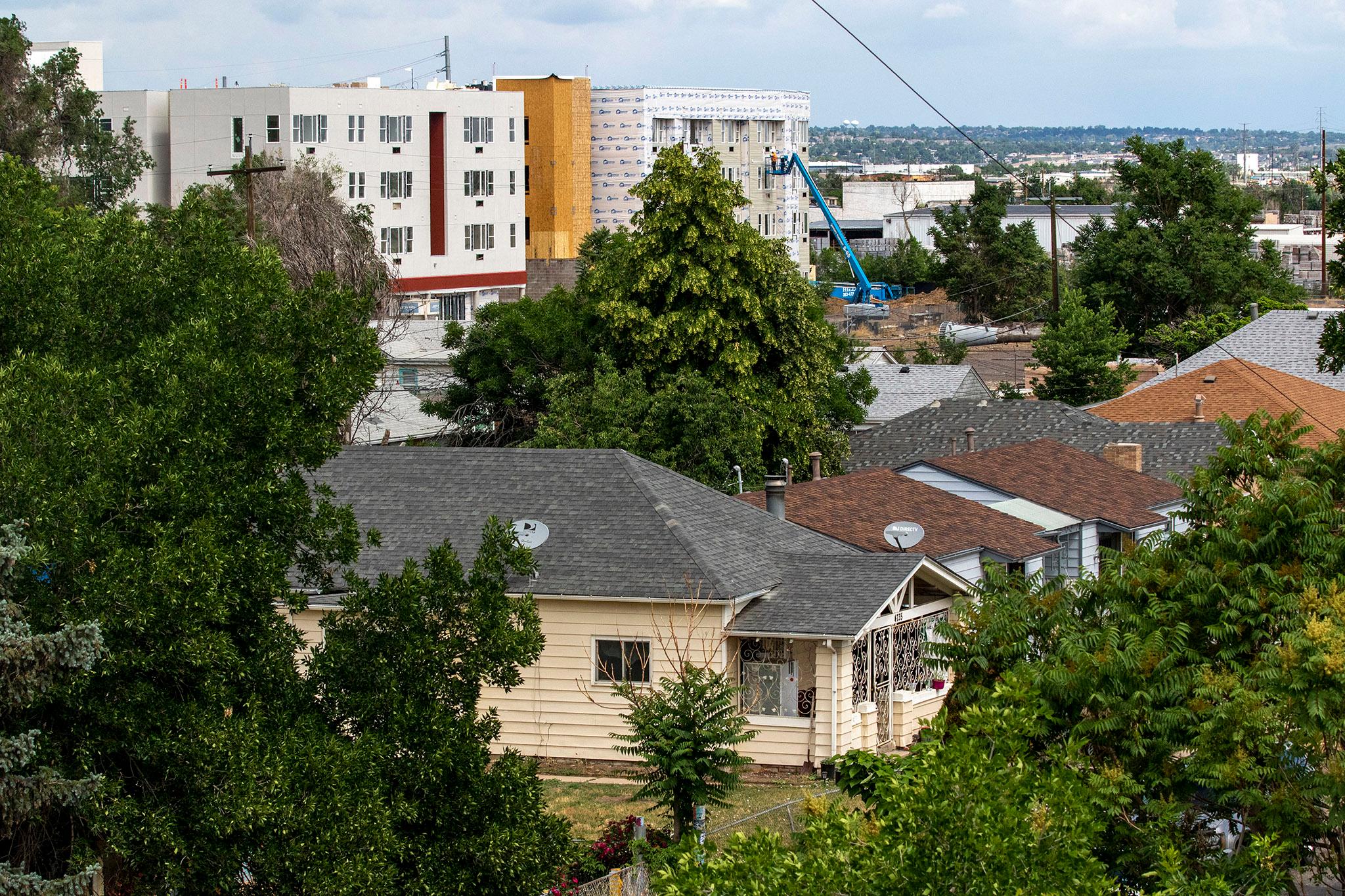How do you stop or slow displacement, especially as housing prices continue to rise in Denver?
According to the Department of Housing Stability, more than 115,000 households, or 35% of households, in Denver are housing burdened, meaning they spend more than a third of their income on housing costs. Out of those 115,000, HOST previously said 48,000 give more than half their income toward housing.
That burden causes housing instability and, as a result, displacement. According to HOST, 30% of renters and 19% of homeowners have been displaced in Denver.
So, what do we do? Some communities say you have to own land. Others say you have stop gentrification.
But HOST is proposing its own method to stop folks from being pushed out of their neighborhoods via policy changes.

It's a "prioritization policy" that would provide people at risk of displacement with "priority access" to affordable housing.
"Citywide rents and mortgages are increasing dramatically and incomes are not keeping up," said Polly Kyle, a housing policy officer with HOST. "Our community has told us time and again that involuntary displacement of residents is growing and a major area of concern."
The proposed policy would require 30% of affordable units in qualifying developments to be set aside for residents at risk of displacement or residents who have already experienced displacement going back to 2000. The policy is also looking to support residents whose families were displaced going back to 1939. Qualifying Denverites would essentially be given first dibs on the affordable units.
Kyle said the idea was initially brought up by members of the Globeville, Elyria-Swansea neighborhoods, who have experienced displacement because of prices and eminent domain for several years.
Nola Miguel, co-director of the Globeville Elyria-Swansea Coalition, said neighbors brought the idea to HOST about four to five years ago when the area began to see massive redevelopment. She said new affordable units were popping up, but nothing was guaranteed to residents already in the neighborhood.

Miguel was told giving preference to people in the neighborhood was considered illegal - possibly neighborhood segregation. For example, if enough low-income residents of Globeville set their preference for Globeville, that could keep residents from other neighborhoods unable to access affordable housing in Globeville and vice versa. If that happens with enough neighborhoods, suddenly everyone is stuck and the city runs into trouble - because a resident seeking housing cannot be limited to only one neighborhood.
That policy, HOST said, is what other cities have proposed, and they've run into legal challenges.
"Everybody wants fair housing laws, but in these circumstances, they can be barriers," Miguel said. "It's an important policy for ensuring that people stay in Denver. We do need the city to be brave in this circumstance but we don't want to make the city vulnerable. Ultimately, there should be affordable housing in every neighborhood."
There are two steps in order to qualify.
The applicant must meet the area median income requirement set by the housing development, and they must be at risk of or experiencing displacement. Displacement qualifications include paying more than 40% of household income toward housing, no cause evictions, residents who experienced eminent domain and those who have lived in redlined neighborhoods.
The policy would apply to affordable rental units and affordable homeowner units. For the rentals, it applies to newly built units - including city-regulated affordable units - and 100-plus apartment complexes that have mandatory housing requirements or if the complex is built in a neighborhood prone to displacement.

The homeownership units work the same way. The policy applies to new builds - including city-regulated units - but only if there's more than 10 units. The policy also only applies to first sales and not subsequent sales.
So, who gets the units?
Well, residents don't get first dibs for long.
They will have a 14-day window to apply for the apartments. Once time is up - depending how many applications were received - leasing agents would determine whether the applicants are eligible through a points system.
Applicants would receive points based on how long they've lived in Denver, their ties to the neighborhood, whether they have a disability and whether they have children enrolled in Denver Public Schools.
"We already have a list of folks who are looking for affordable rentals and we're just going to keep adding to it," Miguel said. "So one question we had is 'Will the people we're trying to push through get through the system?' and 'Will the points be successful in getting them to the highest priority?' I think it will."
HOST originally presented the policy to the Safety, Housing, Education and Homelessness committee in June. On Wednesday, they presented it to be placed on the City Council docket in the coming months.
"We've looked at the weights and given comments regarding kids and other parameters," Miguel said. "Ultimately, we want the policy to do what it is supposed to do, keep people in the neighborhoods they want to be in and overall just stay in Denver."

A few council members were concerned with the points systems, particularly for residents who are disabled or residents who no longer live in Denver yet want to return.
Kyle said HOST has received the most public comments on the points system. She says the system is subject to change as the policy moves forward.
"We are prioritizing folks that are current Denver residents or who had longer standing ties in Denver," Kyle said. "But we also want to prioritize those who have been displaced from the area due to generational displacement. The biggest criticism of preference policies is there's not enough affordable housing.
"I like to talk about policy as bites of an apple. We need a lot of policies to bite at the apple to get to the core and this is one bite of the apple."
The ordinance was ultimately passed through committee and will reach the council floor in the fall. If passed there, HOST would need to create the web system for applicants to apply and, if things go to plan, the policy and system will be up and running by July 2024.
Clarification: This article was updated to clarify that the city does not own or operate affordable housing. Some affordable housing is regulated by the city.













